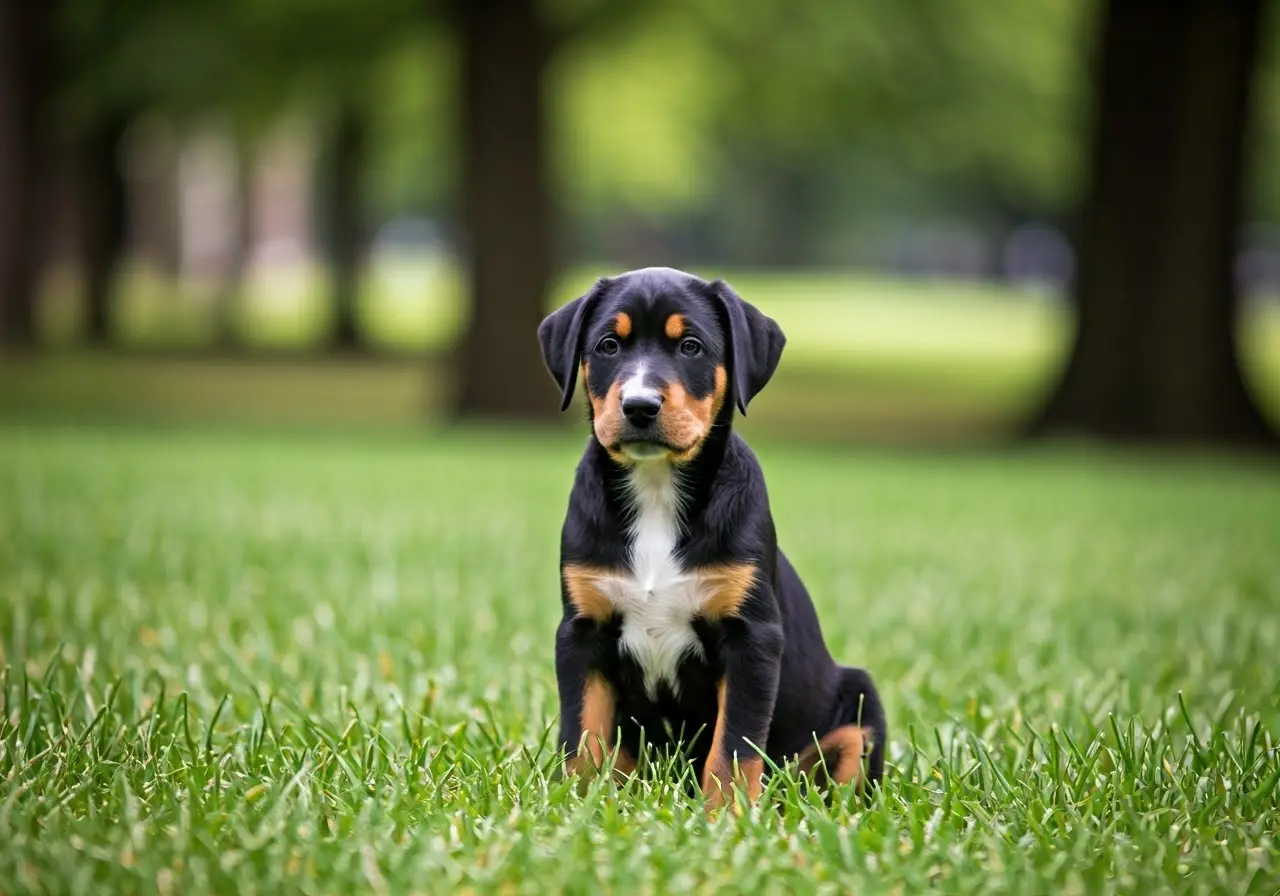Training a new puppy can be both an exciting and challenging endeavor, especially for first-time pet owners. In Madison, there are wonderful resources and strategies that can help make the process fun and rewarding. This guide will provide you with all the information you need to instill good habits and build a strong bond with your furry friend.
Understanding Puppy Behavior
Before you begin training, it’s essential to understand typical puppy behavior and how they learn. Puppies are naturally curious and energetic, but they also have short attention spans. This section will provide insights into how puppies perceive the world and how these traits affect training.
Understanding the way puppies interact with their environment is pivotal in fostering effective training routines. Puppies, being young, are akin to sponges, soaking up experiences rapidly. Yet, they also have a unique blend of naïveté and boldness that influences their behaviors. It’s crucial to expose them to a wide range of activities and scenarios to aid their development. This involves introducing them to various sounds, textures, and situations that they might encounter in the world. Such exposure not only helps with training but also assists in reducing anxiety or fear later in life. By taking a considered approach to their environment, you can help ensure your puppy grows into a confident and balanced dog.
Basic Commands Every Puppy Should Learn
Teaching your puppy basic commands like ‘sit,’ ‘stay,’ and ‘come’ lays the foundation for future training. These commands help establish communication between you and your puppy and are essential for their safety. We’ll explore step-by-step methods to introduce these commands effectively.
Consistency is the key when it comes to embedding these fundamental commands. The process typically begins with short, focused training sessions where treats and positive reinforcement play a pivotal role. For instance, using treats to lure your puppy into a sitting position while associating it with the word ’sit’ can lead to quick learning. Over time, as your puppy’s familiarity with the command increases, gradually reducing the reliance on treats can help solidify the learned behavior without dependency on food rewards. Remember, these basic commands are building blocks, acting as a communication bridge between you and your pup, helping make subsequent training smoother and more intuitive.
House Training Your Puppy in Madison
House training is often one of the first challenges new puppy owners face. In Madison, where the weather can vary greatly, it’s crucial to establish a routine. This section will guide you through the process, including tips for handling accidents and setting up a schedule.
One essential aspect of house training is patience and consistency. Puppies need to be taken out frequently, especially after eating, sleeping, or playing. It helps to accompany them to a designated bathroom spot, reinforcing consistency and encouraging faster learning. Accidents will happen, and it’s important to address them calmly, cleaning the area thoroughly to remove any odors that might attract the puppy to go in the same spot again. Madison’s diverse weather requires flexibility; understanding and preparing for indoor alternatives during harsh weather can prevent setbacks in training. Incorporating a command like ‘go potty’ can also be beneficial, as it teaches the puppy to associate the phrase with the action, streamlining the learning process.
Socializing Your Puppy in Madison’s Community
Socialization is key to raising a well-adjusted puppy. Madison offers a variety of dog parks and puppy classes that provide excellent opportunities for your puppy to interact with other dogs and people. We’ll discuss the benefits of socialization and how to make the most of these local resources.
In Madison, places like Warner Park Dog Park and local events hosted by neighborhood groups provide invaluable socialization opportunities. Introducing your puppy to various dogs, people, and settings is crucial for their overall well-being, helping to mitigate fears and establish friendly behaviors. Classes specifically designed for young dogs focus on structured play and social settings, making them an excellent option for reinforcing positive interactions in a controlled environment. Additionally, engaging in organized playdates with other pet owners can provide unique, personalized experiences that help your puppy become a well-rounded adult dog.
Dealing with Common Puppy Challenges
Every puppy is unique and may present different challenges, such as biting, chewing, or barking. In this section, we’ll cover effective strategies to address these typical behaviors using positive reinforcement techniques. Our goal is to help you maintain a harmonious household while guiding your puppy.
Biting and chewing are natural behaviors in puppies, often related to teething or exploration. Providing appropriate chew toys can redirect their need to chew to suitable objects. Consistent responses to unwanted behaviors, like a firm ‘no bite,’ coupled with rewarding positive behaviors, help reinforce desired actions. Similarly, excessive barking can be managed by understanding and addressing the underlying cause, whether it’s attention-seeking or alert behavior. Training methods such as ‘quiet’ commands combined with positive reinforcement can significantly reduce unwanted barking. Consistency and persistence in enforcing these training techniques create a calm and balanced household environment.
Additionally, leash aggression or fear can be common as puppies start experiencing outdoor environments. Using a gradual approach when introducing your puppy to a leash and rewarding calm behavior with treats helps create a positive association. Recognizing your puppy’s signals and setting achievable goals makes the learning process enjoyable and stress-free for both you and your furry friend.
Finding Puppy Training Resources in Madison
Madison is home to various resources that can assist with puppy training, from professional trainers to community groups and online forums. We’ll provide a list of recommended resources so you can find the right support system to meet your needs and ensure your puppy grows into a well-behaved dog.
Local pet stores often offer training sessions led by certified professionals, providing structured learning environments tailored for puppies. Community centers in Madison frequently host seminars and workshops, offering additional hands-on experiences for both new and seasoned dog owners. Online forums and social media groups serve as invaluable platforms, providing access to shared experiences and advice from pet owners throughout Madison. Engaging with these locally available resources can ensure you have the information and support needed to navigate the rewarding journey of puppy training.
Embrace the Journey with Your Furry Friend
Training your puppy is a journey filled with learning and growth for both you and your pet. With Madison’s supportive community and numerous resources, you’ll find ample opportunities to succeed. Remember, patience, consistency, and positive reinforcement are your best tools. Enjoy the adventure with your new puppy, and cherish the memories you create along the way. Start your journey with us by visiting our homepage.


